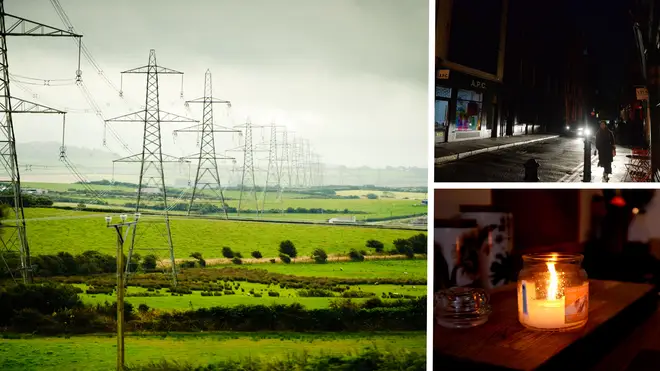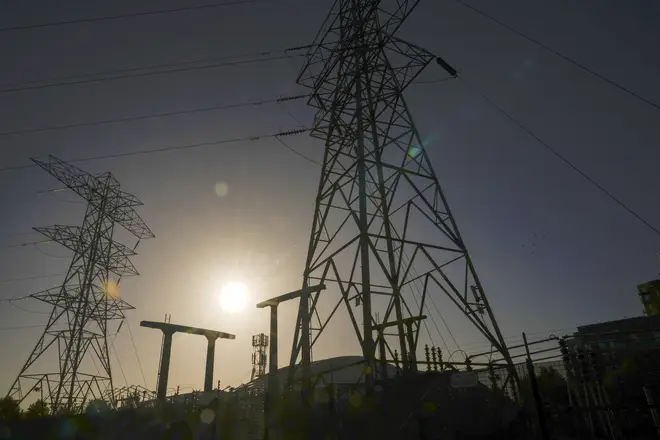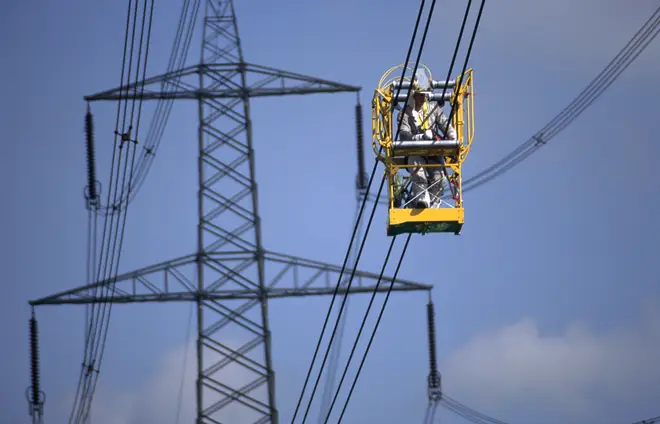
Paul Brand 10am - 12pm
17 October 2022, 21:42 | Updated: 18 October 2022, 07:07

People in the UK may have to use more than 10% less gas to avoid rationing this winter, the international energy agency (IE) has warned, while the country may also face rolling blackouts, according to the National Grid.
People in the UK and Europe will need to scale back the amount of gas they use by 13% to remain "safe and secure", in case Russia turns off gas supplies - a worst case scenario - the IEA said.
That should mean enough gas will be held in storage to meet demand in March 2023, when supply will be the most vulnerable.

As well as Russia stopping deliveries of gas, the worst-case scenario also envisages that liquefied natural gas supplies also do not continue at their current level.
Read more: Police hunting for yobs on moped who threw microwave at moving car near cemetery
The IEA said in a report: "Europe’s security of gas supply is facing unprecedented risk as Russia intensifies its use of natural gas supplies as a political weapon.

Potential blackout: 'So much of what we do is geared around electricity.'
“The possibility of a complete cut-off in Russian gas deliveries cannot be dismissed ahead of the heating season – when the European gas system is at its most vulnerable.
“Our analysis indicates that maintaining adequate storage levels until the end of the heating season – at 33pc of their working storage capacity as a minimum – will be crucial for a safe and secure winter.”

The stark warning comes as the boss of the National Grid said that the UK could face blackouts in the "deepest, darkest evenings" in January, if generators did not secure enough gas from Europe from 4pm-7pm, the peak hours of demand.
John Pettigrew told a Financial Times conference that the energy supplies would be most at risk in January and February, if there was extremely cold weather and the gas-fired power stations could not be supplied with enough gas from the continent.
Read more: Liz Truss finally 'says sorry for mistakes' - to Conservative MPs
Mr Pettigrew said that the "worst case" circumstance, which he said was "unlikely", power could be cut off for three hours at a time.
Setting out these scenarios is unusual, Mr Pettigrew said, but “in the context of the terrible things that are going on in the Ukraine and the consequences of that [it was] right that we set out what some of the potential risks could be.”

The news comes after Prime Minister Liz Truss vetoed a plan to help British people reduce their energy consumption.
Business Secretary Jacob Rees-Mogg is believed to have backed a £15 million campaign this winter, with the Times reporting the idea was blocked by No 10.

Martin Lewis slams Liz Truss for 'ignoring the political realities' of the energy crisis
It added the campaign was seen as "light touch" and included measures designed to help people save up to £300 a year, including lowering the temperature of boilers, turning off radiators in empty rooms and advising people to turn off the heating when they go out.
The newspaper quoted a Government source describing the campaign as a "no-brainer" and said No 10 had made a "stupid decision", but it added Ms Truss is said to be "ideologically opposed" to such an approach as it could be too interventionist.
The campaign was seen as a 'light touch' and included measures designed to help people save up to £300 a year, including lowering the temperature of boilers, turning off radiators in empty rooms and advising people to turn off heating when they go out.